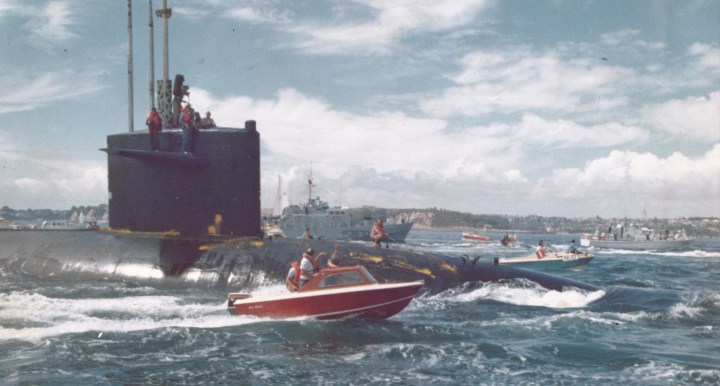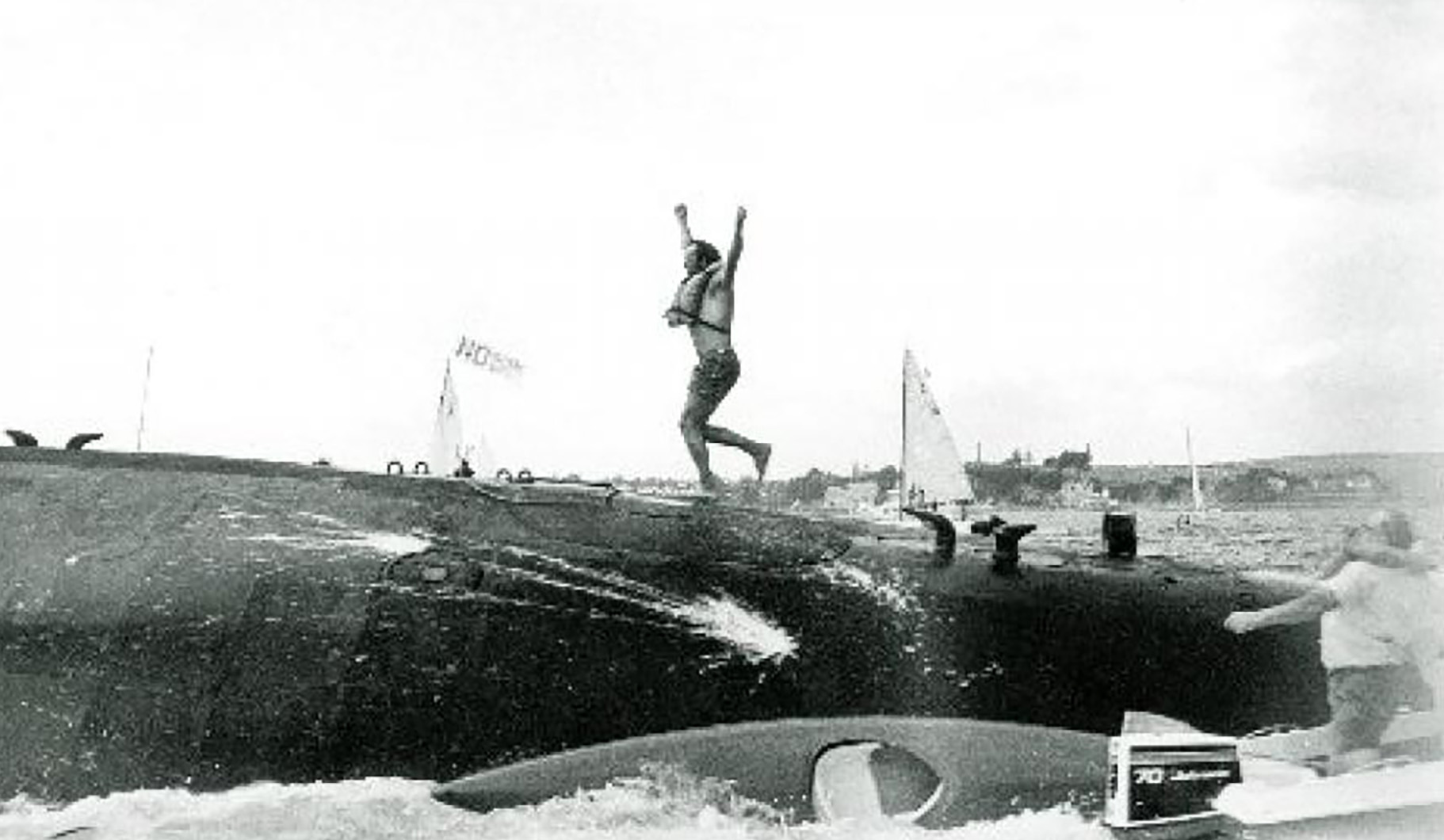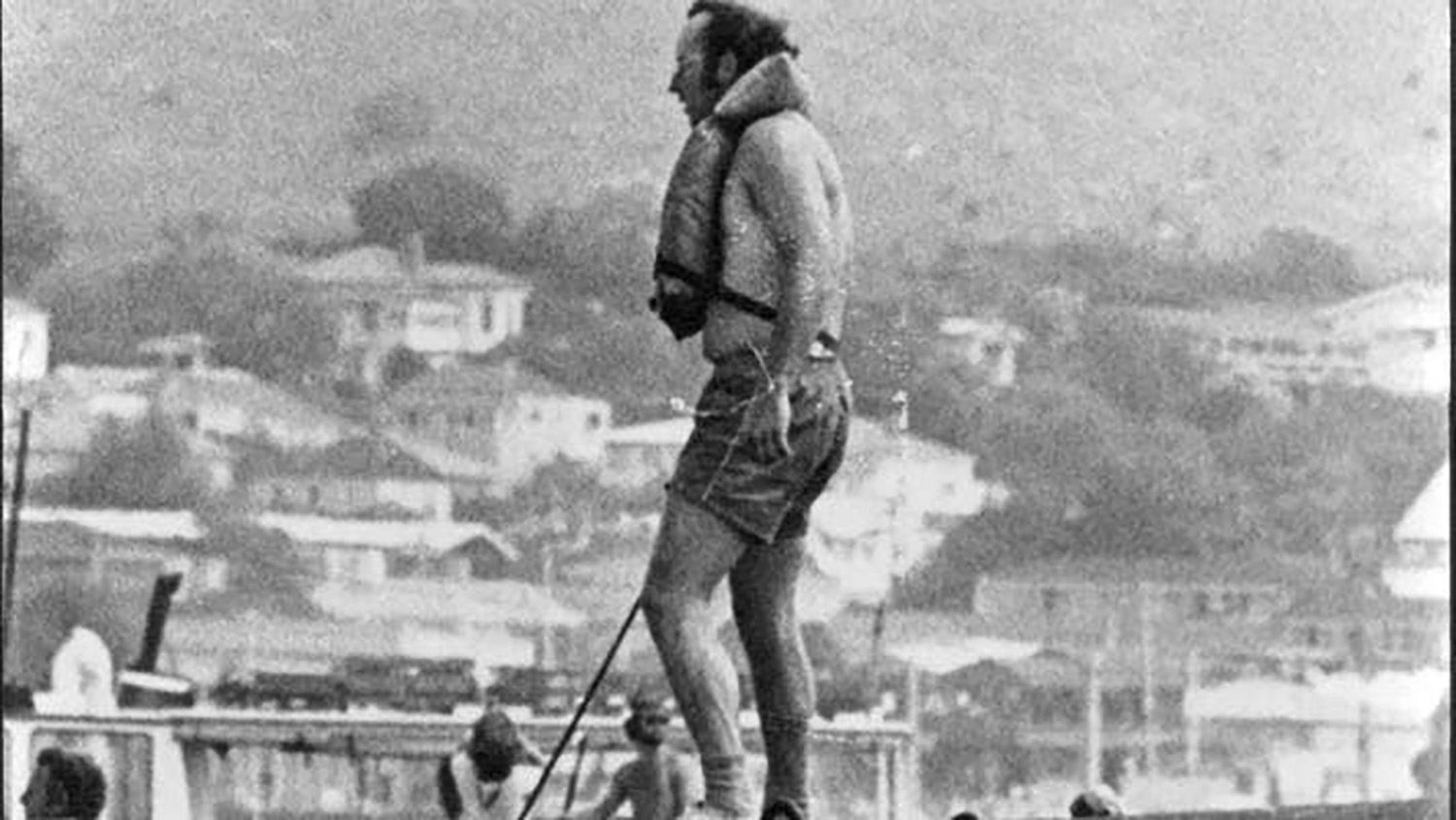OP-ED
Reflections of a Wayward Boy: How I took on the nuclear might of the US Navy dressed in red underpants

The last year or so of our nine-year stay in New Zealand was largely taken up with collecting material for the proposed ANC primary school in Tanzania for the children of South African exiles. But I was also involved in three prominent protests, one of which resulted in me being remanded indefinitely in custody, and which underlined lessons I should have absorbed many years earlier.
The only detail ANC president OR Tambo gave about the school on a former sisal plantation near Morogoro, donated to the ANC by the Tanzanian government, was that it was being set up to cater for a flood of young, post-Soweto-uprising exiles. Also, many families were arriving with young children. Planning for the secondary school was going ahead, but could we come to Tanzania to establish a primary division?
The ANC had clearly not imploded and seemed to have got its act together — and we were being offered a role to play in an area we considered vital. So we bought two large timber cases used for importing cars for assembly. These could be converted into crude accommodation when empty and we proceeded to fill them with more than a tonne of donated educational equipment, books, tools and other material we thought we might need.
Apart from the experience gained from different settlements in New Zealand while travelling throughout the country, living in a bus, we had also spent most of our time in what was a rural village outside Auckland. There we collected and provided all our water needs from rainfall, and where sanitation was by septic tanks and so-called French drains were a source of fertilisation. In short, we considered we had readied ourselves for any problems we might face in Tanzania. Once again, we were wrong, but that was a painful experience we still had to go through.
As we collected material, optimism was the essence, especially since we were convinced that apartheid sporting tours were a thing of the past. On the anti-apartheid front, the boycott drive had moved toward companies that maintained links with apartheid South Africa. Divestment did follow, but only after some uproarious annual general meetings. The occupation of Auckland’s Bastion Point was also victorious, with the land returned to the Ngati Whatua people.
Most of the AAM and Maori land supporters also backed the call for a nuclear-free Pacific. This had developed strongly during the French nuclear tests at Mururoa and, by 1978/79 was focused on visits to Auckland by nuclear-powered and armed warships of the United States. In January 1979, news arrived of the visit of the nuclear-powered and armed submarine, the USS Haddo. The very large, but loosely organised, Peace Squadron prepared to set sail.
There were yachts, motor launches, rowing boats and assorted craft that planned to block the passage of what was dramatically referred to as “Haddo, the shadow of death”. In my red underwear — I had forgotten my costume — and wearing a blue shirt against the summer sun, I set off into the Waitemata harbour in a borrowed kayak. It was chaos out on the water as this surprisingly huge vessel inched its way through Peace Squadron craft that were being towed, barged at and pursued by police launches.
I paddled straight at the Haddo thinking I might be able to ride the bow wave and land on the deck. Instead, I was swept on a wall of water alongside the bow. I came to a sudden stop beside the conning tower, wedged between the submarine’s hull and a motorboat with two people in the stern hurling yellow paint-filled eggs at the conning tower. And that was how I ended up in the motorboat, a paint thrower, while Stephen Sherrie, using the kayak as a stepping stone, got onto the deck of the submarine.


Pilot of the boat was Pat McQuarrie the World War 2 Hurricane pilot and flour bomber of the apartheid softball tour. He and Stephen’s father (the other paint thrower) managed to get away and were never identified, but I ended up in the water and was arrested. Once ashore, I was charged with obstruction before being released to find my way home.
A court date was set and to prepare, I borrowed and studied a highly regarded doctoral thesis on obstruction from Auckland University, determined to argue that I had not willfully obstructed any officer. Also that it was the duty of the police to protect the public from danger and that this was what I, and other members of the Peace Squadron, were doing.
When I told the prosecutor I intended to defend the case, he responded by adding another charge: offending the dignity of the captain of the Haddo by appearing before him in red underparts. “You must be joking,” I said. He wasn’t. But he added that he would make me an offer: “You plead guilty to one and I’ll drop the other.” When I asked: “Which one?” he replied: “Take your pick.”
At that stage I should have demanded an adjournment and consulted a lawyer, but anger and arrogance drove me. In the process I ignored the second charge, forgetting that by not defending it, a guilty verdict would stand if the matter went to appeal because only evidence presented at the trial would be considered.
It didn’t take long to realise that guilty verdicts would be a certainty. The district judge made no secret of his displeasure, both with me and with the frequent laughter from Peace Squadron supporters in the gallery. I was sentenced to fines and the judge stormed out as I was explaining that I had no intention of paying them.
Belatedly, I went to see a friendly lawyer, Barry Littlewood. He took the matter on appeal and, as he predicted, the obstruction charge was thrown out. But he noted wearily: “All you probably had to do was mention in defence to the second charge that your red underpants could hardly have offended the dignity of anyone since the police had released you into the main streets of the city dressed like that.”
So I was still guilty and liable to a fine. But I didn’t bother as we finalised plans to leave. Then, one Sunday afternoon, a young police constable knocked at the door. He had been sent, he said, because I had “obviously overlooked the payment of a fine”. He seemed shocked when I said I had deliberately not paid it, pointing out that he would have to arrest me. I invited him in, sat him down and called an impromptu family meeting on the issue.
Son Brendan, aged seven, tearfully implored me to pay the fine. Daughter, Ceiren, aged 10, was just as adamant that, on principle, I should refuse. Barbara abstained: “It really is entirely your decision,” she said. And so I ended up spending the night on a very comfortable bunk in a single cell at the Takapuna police station, followed by a decent cooked breakfast in the morning. Then, with other miscreants, I was trucked down to the holding cells at the North Shore courts.
When my case was called, I don’t know who got the bigger shock, the judge or me. For on the North Shore bench that day was the judge who had sentenced me in Auckland. “Are you here to pay the fine?” he barked. “No,” I answered, adding “as your honour will recall…” He cut me short with: “I don’t recall anything,” banged his gavel and sentenced me to be detained in custody, presumably for as long as I failed to pay the fine.
Indefinite detention did not appeal and since I had enough money on me, I did think briefly about paying. But then, another prisoner reminded me: custody would be in “The Mount” (Mt Eden prison). There had been rumours for years about overcrowding and poor conditions in that prison. It was an opportunity I couldn’t miss. The inside story I could produce after a couple of days of incarceration would be worth it.
However, my plans were stymied when I heard the Takapuna police sergeant instruct the prison van driver: “One of them’s a journo. Can’t have him in the Mount. He was sentenced in Auckland, so dump him on the Auckland court before it closes.”
In the event, I duly “dumped” myself after being sent, with a police constable guard, to the clerk at the payments office of the Auckland court. Since I was not paying, neither he nor the constable seemed to know what to do, so I suggested that, since I was now in the charge of the clerk, the constable should leave. He thanked me — and did so.
The clerk, who turned out to be a supporter of the Peace Squadron, had no authority to detain anyone. So he wished me well as he suggested: “Why don’t you just bugger off home now?” I did just that, but, on the following day, called in on Barry Littlewood, just to make sure.
“There’s been enough embarrassment caused,” he said. “The police know you’re going, so they’ll wait until you’re gone. Then a warrant of arrest will be issued and they’ll inform the court that you’ve left the country and the whole thing will be dropped.” He was right. DM



















 Become an Insider
Become an Insider
Comments - Please login in order to comment.